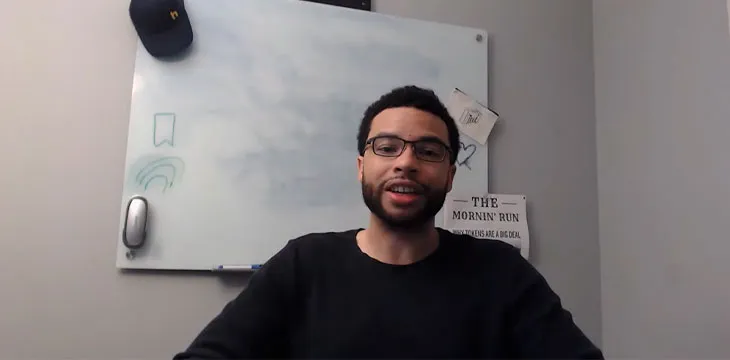|
Getting your Trinity Audio player ready...
|
After returning from the BTC Miami conference and explaining what he experienced there, BSV developer Joshua Henslee released a new video explaining how BSV transaction rates have dropped rapidly over the past few months.
BSV network fees are dropping rapidly
Henslee reflects that it wasn’t long ago that the norm for BSV fees was 0.5 satoshis per byte. He notes that this is still cheaper than BCH, with a fee rate of 1 sat per byte. Sometime around 2020, he remembers that BSV node operators cut the fee rate to 0.5 sats per byte. Back then, if you sent a transaction with a 0.25 sats per byte fee or less, it could get mined in the next block, but that wasn’t guaranteed.
However, since around March 2022, Henslee has noticed that even transactions with fees of 0.1 sats per byte have been getting mined. He mentions that when visiting the BTC Miami conference, a CryptoFights team member told him they’re processing transactions with fees of 0.05 sats per byte, representing a 10x drop in roughly six months.
Henslee sees this as evidence that the BSV ecosystem is moving forward. He believes that primarily CryptoFights has driven the fee rate down. He laughs at how critics will say that the millions of transactions this game generates are mostly spam, but this is just their subjective bias.
“The crazy thing is that it’s going lower; .05 sats is still too high,” Henslee notes.
While other blockchains grapple with keeping fees reasonable, BSV app operators can tell their customers that they’re dropping fees by 5x, Henslee says. In theory, this should increase demand for BSV blockchain transactions. He expects the fees to be .01 sats per byte by the end of the year.
The future of BSV is bright
Henslee often points out how BSV’s critics will do all kinds of mental gymnastics to avoid acknowledging the organic growth in the ecosystem. He knows what is being built on the BSV blockchain, and he wonders when the critics will give in and admit this is a legitimate chain with real use cases and a bright future.
Henslee also has ideas for how things can progress even more quickly. In a previous video, he spoke about how the maximum transaction size on BSV needs to be increased. He believes that if this can be done in conjunction with the lower fees he’s talking about, the incentives for users to put data on the blockchain will cause further growth. He notes how Jamify is already putting audio files on the blockchain, and he re-emphasizes that the next step should be video files.
Lower fees with higher volume and the near-term future for BSV
While some critics will point out that lowering the fees by this much cuts the income for miners/transaction processors, Henslee states that there’s another side to this; lower fees incentivize more transactions. CryptoFights is a good example of this. Would it have been able to do more than 10 million transactions in a day if not for the lower fees? We’ll never know, but the low transaction fees certainly didn’t hurt.
Speaking of the near-term future, Henslee believes that 10 million daily transactions will become the norm on BSV. When this happens, blocks of several gigabytes will also become the norm. He also believes that we’ll see 100 million transactions per day before the end of 2023 and that, at some point, miners will sit up and take notice of the transaction fees inside big BSV blocks. This will have an inevitable impact on other chains. Eventually, 100 million daily transactions will be a regular occurrence, and then it will be impossible to compete with BSV.
Summing things up, Henslee emphasizes that lower BSV fees are great for everyone, including users, developers, businesses, and everyone else.

 07-15-2025
07-15-2025 





